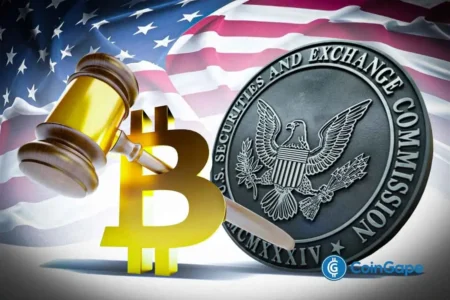Kenya’s High Court Rules Against Worldcoin Foundation: A Legal Perspective
In a landmark ruling on May 5, 2025, the Kenyan High Court declared the operations of Sam Altman’s Worldcoin Foundation illegal. The court ordered the immediate deletion of all biometric data collected from Kenyans, highlighting significant violations of the Data Protection Act, 2019. This judgment arrives against a backdrop of increasing scrutiny over Worldcoin’s practices. Just a day before the Kenyan decision, Indonesia had suspended Worldcoin’s registration for similar regulatory breaches, marking a potential turning point for cryptocurrency initiatives in the region.
Legal Implications of the Ruling
Lady Justice Aburili Roselyne presided over the case and issued three critical orders against the Worldcoin Foundation. The court mandated that within seven days, all iris and facial biometric data collected without proper consent must be deleted. The decision underscores the importance of adhering to stringent data protection laws in Kenya. It also points to the foundation’s failure to conduct a valid Data Protection Impact Assessment, which is essential for any organization collecting personal information. Consent for data collection was deemed unlawful, as it was allegedly secured through financial inducements involving Worldcoin’s cryptocurrency.
Role of the Katiba Institute
The court’s ruling stemmed from a legal challenge led by the Katiba Institute, a civil society organization dedicated to advocating for rights and freedoms in Kenya. They contended that Worldcoin’s data collection methodologies, utilizing both a digital app and biometric Orb devices, circumvented national privacy laws. In a statement following the ruling, the Katiba Institute celebrated the decision as a victory for privacy rights in the digital age, emphasizing that it validates their concerns regarding the foundation’s practices.
Worldcoin’s Operations and Controversies
Worldcoin launched its operations in Nairobi in early 2023, enticing users with offers of cryptocurrency valued at Ksh7,000 in exchange for biometric data. However, large gatherings at public locations raised alarms over safety and privacy concerns, prompting government interventions to cease the registration process temporarily. The meticulous scrutiny of Worldcoin’s activities reflects broader public apprehensions regarding how emerging technologies handle personal data, particularly in developing nations with nascent regulatory frameworks.
International Scrutiny and Suspension in Indonesia
The turbulence surrounding Worldcoin extends beyond Kenya. Shortly before the judicial ruling, Indonesia suspended Worldcoin’s operations for violating local regulations. The Ministry of Communications and Digital cited unauthorized activities and reliance on unregistered legal entities in its digital services. The situation intensified as regulatory bodies cracked down on potential illegal operations, warning of serious consequences for noncompliance. This international action signals a growing trend among regulators to scrutinize cryptocurrency projects dealing with sensitive personal information.
Market Reactions and Future Outlook
Following the legal challenges, the price of Worldcoin’s token (WLD) experienced a significant decline, dropping over 6% within 24 hours. It is evident that the combination of regulatory challenges in both Kenya and Indonesia is creating turmoil in the market, impacting investor confidence. As the token price fluctuates, so does the open interest in WLD, raising questions about its viability moving forward. Stakeholders in the cryptocurrency sector must now reassess the legal and ethical implications of their operations, especially concerning data privacy.
Conclusion: Lessons for the Cryptocurrency Landscape
The rulings in Kenya and Indonesia serve as a poignant reminder of the essential balance between innovation and regulation in the fast-paced world of cryptocurrency. Lawmakers and regulators are increasingly holding companies accountable for respecting privacy and data protection standards. As the global landscape continues to evolve, organizations like Worldcoin must adapt to ensure they operate within legal boundaries while promoting technological advancement. The outcome of such cases not only shapes the future of specific projects but also sets a precedent for how the industry as a whole adheres to regulatory frameworks. This evolving scenario will have far-reaching implications for the legitimacy and sustainability of cryptocurrency ventures globally.
In light of these events, it’s clear that stakeholders in the cryptocurrency ecosystem must prioritize compliance with local laws to maintain trust and secure their operations against legal repercussions.
















